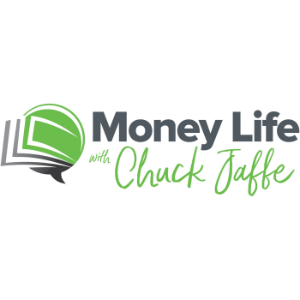
Money Life with Chuck Jaffe
Markets and Investing
Money Life with Chuck Jaffe is leading the way in business and financial radio. The Money Life Podcast is a daily personal finance talk show, Monday through Friday sorting through the financial clutter every day to bring you the information you need to lead the MoneyLife.
Location:
Groton, MA
Description:
Money Life with Chuck Jaffe is leading the way in business and financial radio. The Money Life Podcast is a daily personal finance talk show, Monday through Friday sorting through the financial clutter every day to bring you the information you need to lead the MoneyLife.
Twitter:
@moneylifeshow
Language:
English
Contact:
245 Reedy Meadow Road Groton, MA 01450 (774) 262-0949
Website:
http://moneylifeshow.com/
TradeStation's Russell: A.I. boom has masked emerging economic weakness
Duration:00:58:52
Merrill's Quinlan: Market's 'heck of a ride' will keep going 'up and to the right'
Duration:00:59:26
BlackRock's Chaudhuri: It's not a market downturn, just 'a regular cleaning period'
Duration:01:02:24
Chase Investment's Klintworth sees small correction/buying opp ahead
Duration:00:59:18
Google AI gets about 40% of personal finance questions wrong
Duration:00:58:35
Robinhood's Guild: 'Things are fully discounted at the S&P level'
Duration:01:00:34
Schaeffer's Timpane: Bears' 'lost opportunity' should let the market grind higher
Duration:01:00:10
Teucrium's Gilbertie says tariffs create commodity buying opportunities
Duration:01:00:42
Does the Hindenburg Omen mean the market is due to blow up?
Duration:01:00:46
Wells Fargo's Wren: Setbacks are buying opps on the road to 7,500 in '26
Duration:00:58:06
Johnson Financial's Ceci: Rally is ride-or-die on earnings growth
Duration:00:58:59
Westwood's Helfert: Not your father's market, but the rally's not done yet
Duration:01:01:58
'The Vixologist' says the market is still 'fussing around' with uncertainty
Duration:01:01:13
BondBloxx' Bianco says the Fed could be done after one more cut
Duration:01:00:14
TCW's Whalen: Recession odds down, but volatility rising
Duration:00:59:07
Research Affiliates' Arnott: Investors lose billions to bad indexing
Duration:01:01:26
AssetMark's Chan: Markets will stay 'favorable' well into 2026
Duration:01:01:40
IAA's Cofrancesco: Fed will cut, but questions if they'll be felt on Main Street
Duration:01:03:08
Rosenberg says the economy is softening and the bubble is in place
Duration:01:01:04
3EDGE's Cucchiaro: 'Market melt-up' will lead to an avalanche in stock prices
Duration:01:00:25